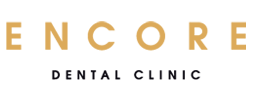Preventative dentistry for older patients can not be understated, as taking all the necessary steps to maintain your teeth for a lifetime is important. As we age, paying attention to our oral health becomes increasingly important. Elderly patients can benefit greatly from preventative dentistry, including regular examinations and treatments to help ensure their teeth stay healthy.
Preventative dentistry is a proactive approach to oral health that helps maintain healthy teeth and detect and address any potential issues before they become more serious. In this blog post, we will discuss the importance of preventative dentistry for the elderly and how it can maintain healthy teeth regardless of age. Also, as your trusted Port Coquitlam dentist, we’re committed to providing high-quality dental care personalized to your unique needs and goals.
What is Preventative Dentistry?
Preventative dentistry prevents oral diseases via exams and tips. Elderly patients are more vulnerable to decay due to age-related factors. A comprehensive oral exam is performed to detect any decay or disease. X-rays and diagnostic tools are used to understand oral health. The dentist provides tips and treatment plans after the exam. Regular visits to the dentist help maintain good oral health.
The Benefits of Preventative Dentistry
One of the most important benefits of preventative dentistry is that it allows for the early detection and treatment of potential dental issues. By conducting regular oral exams and analyses, dentists can identify and address potential problems before they become serious. This especially benefits elderly patients with weakened or deteriorating teeth and gums.
Preventative dentistry also helps to maintain overall oral health. It is important to ensure that elderly patients follow proper oral hygiene tips and practice healthy lifestyle habits to ensure their mouths remain in optimal condition. Regular visits to the dentist allow for proper monitoring and guidance to ensure that any necessary treatments are given when needed.
Preventative dentistry is important to maintaining a healthy mouth regardless of age. Through regular visits, examinations, analyses, and tips for proper oral hygiene, elderly patients can benefit from the peace of mind that comes with knowing their teeth and gums are in good condition.
Best Practices for Maintaining Healthy Teeth
Maintaining healthy teeth and gums is important at any age, especially for elderly patients. Good oral hygiene habits are essential for avoiding tooth decay, gum disease, and other dental issues. Here are some of the best practices for maintaining healthy teeth, regardless of age:
1. Brush twice a day with fluoride toothpaste. Brushing helps remove plaque, bacteria, and food particles that can contribute to tooth decay. Make sure to brush all sides of your teeth, and don’t forget to floss daily.
2. Visit the dentist regularly. Elderly patients should have an oral exam at least once a year to check for signs of tooth decay, gum disease, and other oral health problems.
3. Limit sugary snacks and drinks. Eating and drinking foods high in sugar can increase the risk of tooth decay, so it’s best to limit sugary snacks and drinks as much as possible.
4. Quit smoking. Smoking can lead to serious oral health problems such as gum disease, tooth discoloration, and bad breath. Quitting smoking can help improve your overall oral health.
5. Ask your dentist for tips on caring for your teeth. Your dentist can provide you with valuable information on how to maintain good oral hygiene and suggest any treatments or medications that may be necessary.
These simple oral tips can help keep your teeth healthy and strong regardless of age. Maintaining good oral hygiene habits is important to prevent cavities and gum disease, and regular visits to the dentist will ensure that any potential issues are caught early.



